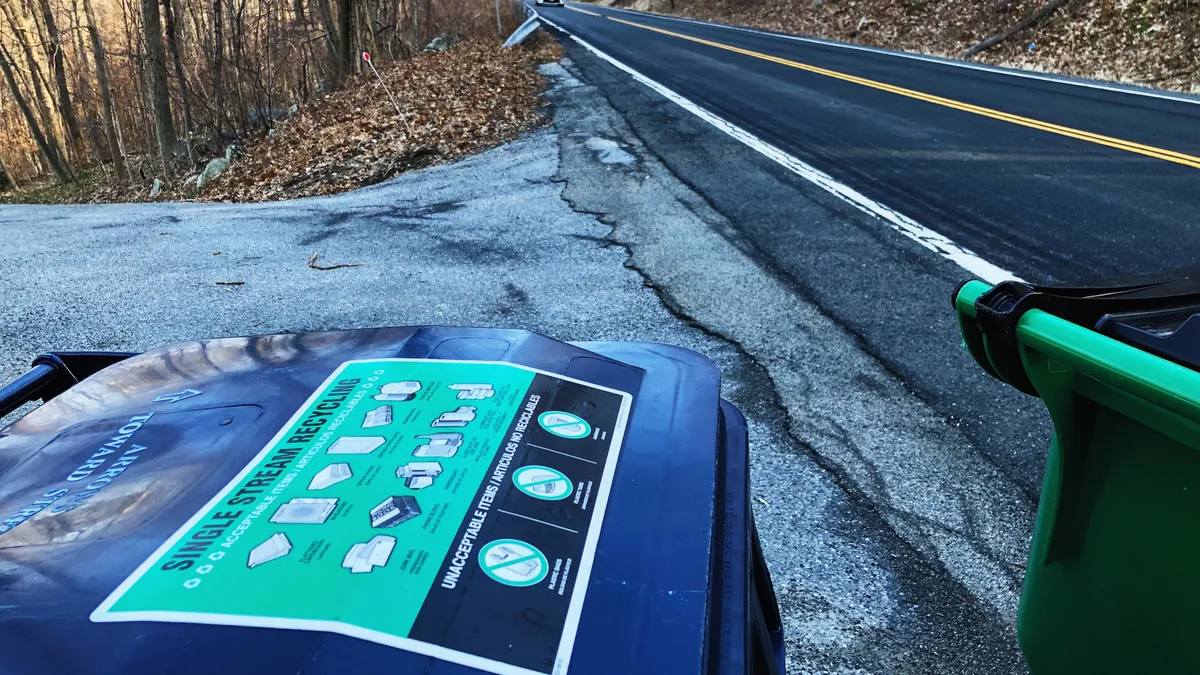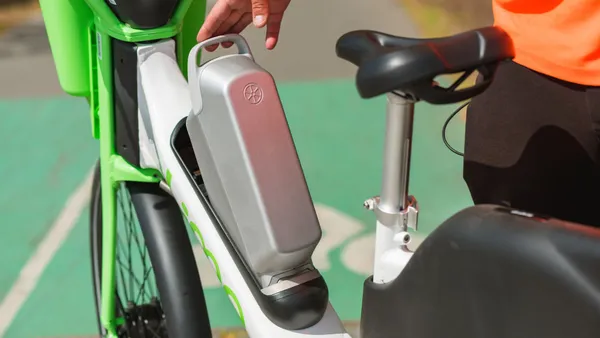A group of 17 lawmakers recently signed a letter asking the U.S. EPA to adopt a standardized labeling system for recycling bins, saying a single label design could reduce confusion and prevent trash from ending up in the recycling stream.
In the letter, the lawmakers say there are too many different versions of informational labels on recycling bins around the country, and a standardized format would more clearly explain what’s acceptable to recycle in each region. The call to action is backed by Recycle Across America, which has made standardized recycling bin labels a longtime project.
Bin labels are already mentioned as part of the EPA’s National Recycling Strategy, the agency’s roadmap for how the U.S. could achieve a 50% recycling rate by 2030. The recycling strategy document suggests adopting “consistent labels, signage, symbols and messaging for recyclable products, recycling bins and trash bins.”
“Standardized labels for recycling and trash bins work, a fact that EPA has already recognized by including them in the National Recycling Strategy under Objective C. Yet, strategy execution of this objective is lacking,” lawmakers said in the letter.
The concept is similar to standardized road signs and nutrition labels on food, said Mitch Hedlund, Recycle Across America’s founder and executive director, in a video urging Congress to support the effort. The state of Rhode Island, along with several national parks and several school districts, use bin labels designed by Recycle Across America.
The call to action is part of a larger trend of lawmakers and activists pushing to standardize recycling systems across the country. Rep. Paul Tonko, D-NY, is among the lawmakers who signed the letter and has advocated for what he calls “complementary” efforts to improve recycling. Rep. Betty McCollum, D-Minn., another who signed the letter, has supported a national recycling strategy and consistent bin labeling efforts since at least 2019.
A separate group could introduce a national bottle bill as early as next year, saying a national container recycling strategy is better than the patchwork of systems currently in effect in 10 states.














